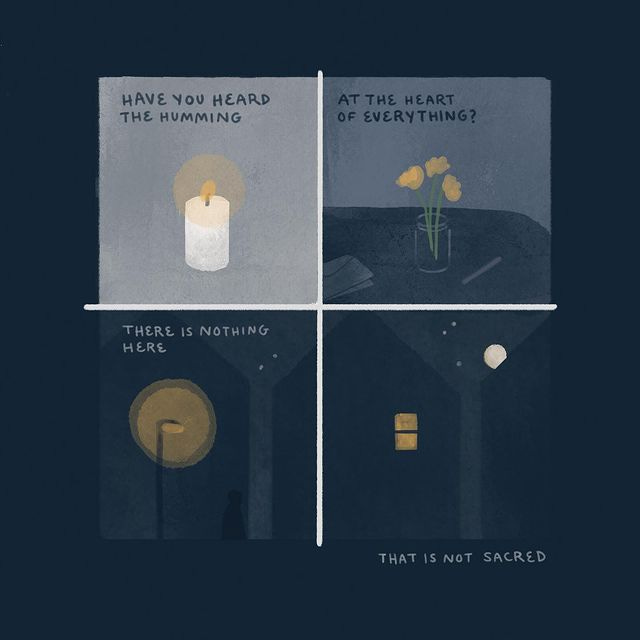Tabs Open #36: Being Born's A Hell Of A Lottery

I’m hoping that I can surprise you a little bit with this week’s newsletter. Given what most previous editions have been like you would be forgiven, looking at the title, your assumption that this issue will continue the themes of inequality and immiseration that pervade most others. But it isn’t, not really. It is about Stories.
That phrase—“Being born’s a hell of a lottery”—comes from David Mitchell’s excellent novel The Bone Clocks, which I just finished rereading. I remembered the broad strokes from my first read-through in 2015 but I didn’t recall most of the details, so I dove back in last week. It’s funny what a few years can do; I remember being gripped by the sexy passages and the grand declarations it contains back then, but found myself moved this time around by the bits about aging family members and the nuances of navigating a marriage and how life goes on without our permission, whether we’re loving it or hating it.
If anyone knows what kind of plant this comes from, holler. I’ve been trying intermittently to figure it out since 2016.
My wife, Ali, hardly rereads anything, Harry Potter and the Lord of the Rings trilogy notwithstanding. She already knows the stories, she says, and there are so many more of them out there. And a good book can set her adrift for days after finishing, while I’ve been known to pick another up within five minutes of finishing even one that deeply moved me, plying my brain with Stories to keep, I suspect, some larger emptiness at bay. Even a full and satisfying life contains more minutiae than magic, and my brain requires supplements to make it through the day.
I just double-checked my reading list for the year and counted 10 new reads finished, 10 rereads finished, and 4 new reads unfinished. Maybe that ratio should make me panic, knowing how many Stories are out there I haven’t gotten to because I’ve been nestling myself inside more familiar comforts. But I don’t think there’s any right way to read so I won’t trouble myself too deeply about it.
Sometimes (oftentimes) when I read I pull myself back from the words themselves and marvel at the kind of person it takes to put them to paper. It is no easy thing to create a world on the page, even if that world is just our regular one seen through the eyes of a particular person. And of course when one is first starting out, the words are always chosen and put in an order that is a very obvious facsimile of other people who have made Stories for a living. It is a very easy trap to fall into and one that takes some years of practice to begin digging your way out of.
Anyway, this is a lyrebird. Please have a listen.
It occurs to me that I don’t know what the lyrebird actually sounds like. I can hear it, sure, but the noises it makes are its (admittedly very impressive) attempts at sounding like a camera shutter, a chainsaw, a laughing child. It is the same with everyone who gets a notion in their head that they’d like to write Stories, at least for a time. They stack impression upon impression and it is difficult to discern the original ideas woven between. (I was for a very long time a crude mimic of Ernest Hemingway, and for briefer periods Salman Rushdie and Stephen King and David Foster Wallace. I know, I know.)
Which is not to say that this method cannot be leveraged for good, eventually. In fact no writing would ever really be done if it couldn’t be. I think about Hunter S. Thompson, who I also used to imitate, and the practice he kept up for years:
He chose, rather than writing original copy, to re-type books like The Great Gatsby and a lot of Norman Mailer, The Naked and the Dead, a lot of Hemingway. He would sit down there on an old type-writer and type every word of those books and he said, "I just wanna feel what it feels like to write that well."

But there is, of course, no way to know that any of this will ever pay off. To carry on in any kind of artistic capacity is an act of faith, like planting a tree or telling someone you love them for the first time, maybe. And we must remember: it was the same way for all those people we now imitate and emulate; not a thing was guaranteed to them, either.
The title of The Bone Clocks comes from an insult for normal people used by a sect of others in the book who have discovered a horrifying method of cheating death. To be mortal is to be a bone clock—counting down the days until one’s body and mind expire from one cause or another. But as I’ve written before (and here, and here), it’s only this finitude that makes anything we do mean, well, anything. If you had an eternity to live it would frankly be embarrassing if you didn’t become a masterful painter or author or violist. So we bone clocks have to take chances and try our hand at making things with absolutely no guarantee that they will be any good at all.
It’s the not knowing that makes life worth getting up for, you know?
I’ll catch you next week.
-Chuck





